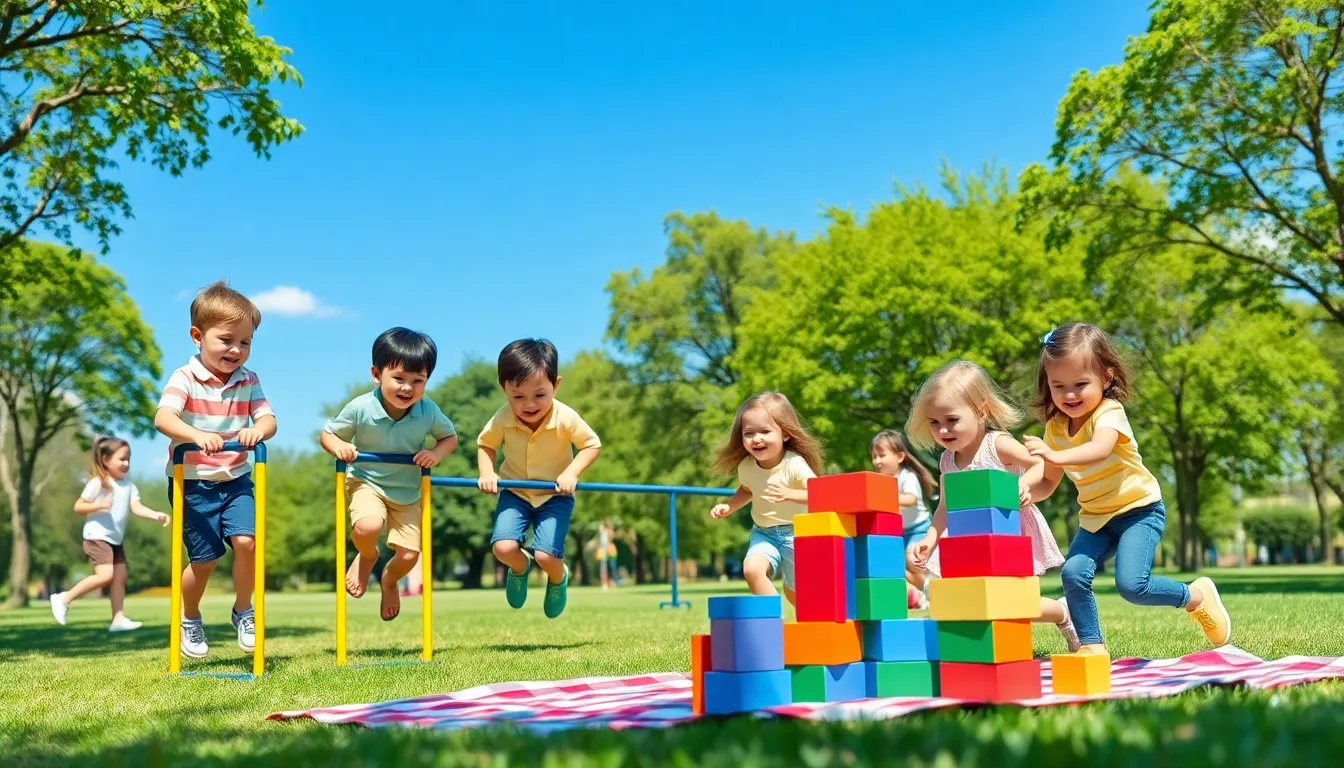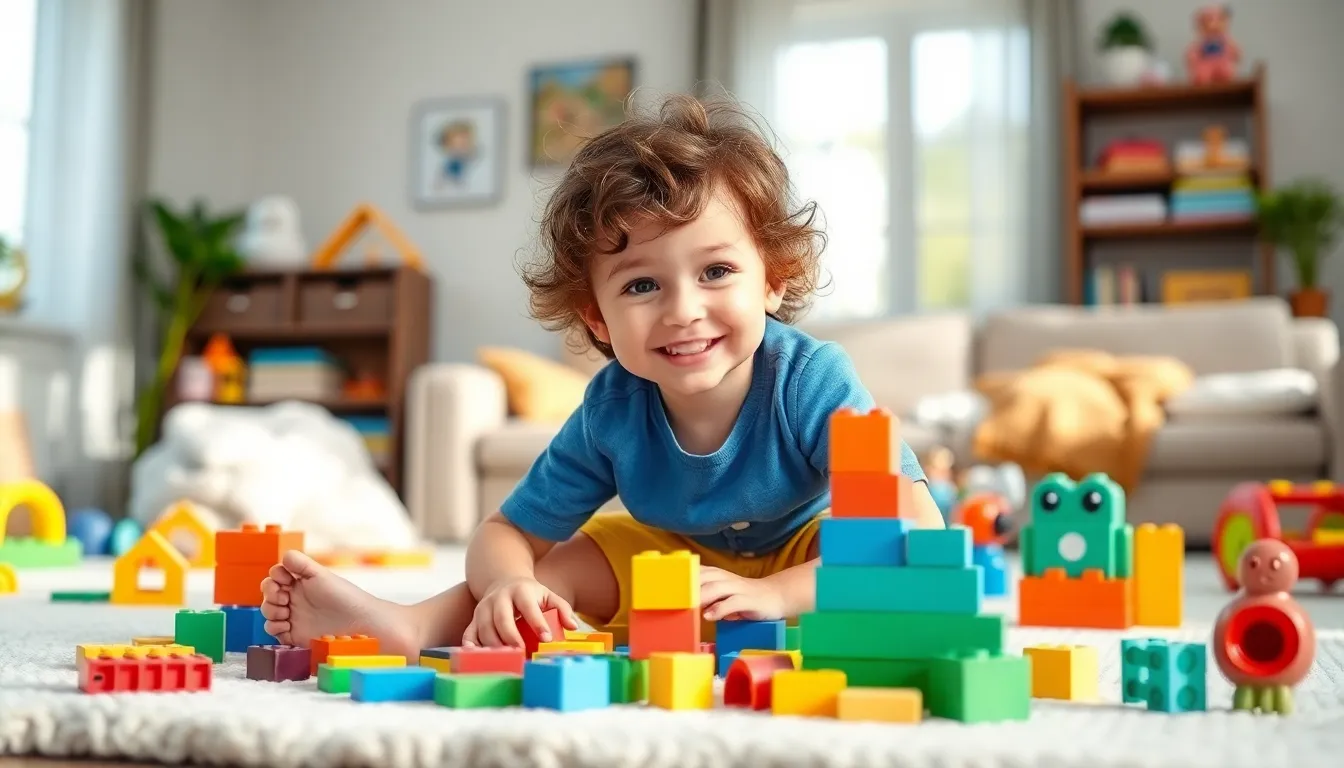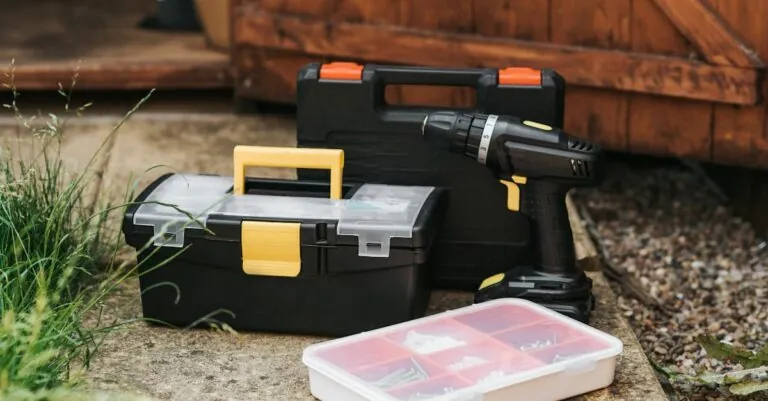When it comes to keeping toddlers entertained, the struggle is real. Parents know all too well that a bored toddler can quickly turn into a tiny tornado of chaos. Luckily, toddler games are here to save the day! These delightful activities not only keep little ones engaged but also sneak in a bit of learning while they play. Who knew fun could be so educational?
Table of Contents
ToggleWhat Are Toddler Games?
Toddler games refer to activities designed for children aged one to four years. These games stimulate cognitive, physical, and social development. Engaging in these games fosters imagination and creativity while enhancing fine and gross motor skills.
Examples include simple puzzles, interactive songs, and sensory play. Puzzles help improve problem-solving abilities, while interactive songs promote language development through rhythm and repetition. Sensory play, such as sand or water activities, encourages exploration and tactile experiences.
Social interaction often occurs during these activities. Children learn to share, take turns, and cooperate with peers. Group games like “Simon Says” or “Duck, Duck, Goose” facilitate teamwork and communication skills.
Physical activity is also a key component of toddler games. Activities like running, jumping, and climbing build strength and coordination. Playgrounds and outdoor games provide excellent opportunities for toddlers to develop gross motor skills in a safe environment.
Incorporating educational elements into games makes learning enjoyable. Color sorting games, counting activities, and shape recognition can seamlessly blend play and education.
Parents or caregivers can easily adapt these games at home or in group settings. Simple household items often serve as materials for various activities. For example, using kitchen utensils for pretend cooking or creating an obstacle course with furniture can lead to hours of fun.
Ultimately, toddler games serve as valuable tools for entertainment and development. They provide an opportunity for exploration, learning, and interaction.
Benefits of Toddler Games

Toddler games offer numerous developmental advantages for young children. Engaging in these activities fosters essential skills across various domains.
Physical Development
Physical development thrives through active play. Games that encourage running, jumping, and climbing enhance gross motor skills. For example, tag or obstacle courses require movement, building strength and coordination. Equally important, fine motor skills improve with activities like building blocks or arts and crafts. These hands-on experiences allow toddlers to refine hand-eye coordination. As children practice balance and agility, they gain confidence in their physical abilities. Overall, active games contribute significantly to a child’s overall health and fitness.
Cognitive Skills
Cognitive skills expand through thoughtfully designed games. Activities like puzzles and matching games enhance problem-solving abilities. Language development occurs as toddlers engage in storytelling or interactive songs. Critical thinking skills emerge when children explore cause-and-effect relationships during play. Moreover, imaginative games promote creativity and allow for exploration. Each of these cognitive exercises supports brain development and strengthens memory retention. Overall, engaging toddlers in stimulating games fosters a love for learning.
Social Interaction
Social interaction flourishes through collaborative play. Group games teach essential skills like sharing and cooperation. Children learn to communicate effectively while playing with peers. For instance, team-based activities encourage teamwork and understanding of turn-taking. Emotional intelligence develops as toddlers navigate conflicts and engage in cooperative problem-solving. Consequently, strong friendships form through shared experiences. Overall, toddler games provide meaningful opportunities for developing interpersonal skills.
Popular Types of Toddler Games
Toddler games come in various types, catering to different environments and developmental goals. These activities provide engaging ways for young children to learn and play.
Outdoor Games
Outdoor games offer fresh air and physical activity, crucial for a toddler’s development. Popular options include tag, hide-and-seek, and simple ball games. Tag encourages running and chasing, enhancing gross motor skills. Hide-and-seek fosters spatial awareness and problem-solving. Ball games like catch improve hand-eye coordination while nurturing teamwork. These activities also build social skills, as toddlers learn to cooperate and communicate with peers.
Indoor Games
Indoor games add variety and entertainment for rainy days or limited space. Activities such as building with blocks, arts and crafts, and simple board games stimulate creativity and fine motor skills. Building blocks help toddlers understand balance and spatial relationships. Arts and crafts enhance hand dexterity and imaginative thinking. Board games introduce turn-taking and basic counting, encouraging cognitive development and social interaction.
Educational Games
Educational games blend learning with play, making skill acquisition enjoyable. Examples include simple puzzles, flashcards, and matching games that reinforce language and math concepts. Puzzles enhance problem-solving abilities and concentration. Flashcards introduce vocabulary and recognition skills. Matching games bolster memory and cognitive growth through fun challenges. Engaging in these educational activities promotes holistic development, ensuring toddlers flourish academically while enjoying themselves.
Tips for Choosing Age-Appropriate Toddler Games
Selecting age-appropriate games is crucial for fostering development while ensuring safety. Parents should consider various factors when choosing activities for toddlers.
Safety Considerations
Safety remains a top priority when selecting toddler games. Ensure that toys and materials are non-toxic and free of sharp edges. Look for items with age recommendations to avoid choking hazards. Supervision is important, especially during active play. Soft surfaces for outdoor games reduce injury risk. Games should promote safe exploration while encouraging physical activity. Additionally, avoid electronic devices that can disrupt engagement with peers.
Engagement and Fun
Engagement is vital for maintaining toddlers’ interest in games. Choose activities that encourage creativity and imagination. Simple games, such as building blocks, stimulate problem-solving skills while being enjoyable. Look for interactive elements that involve music or movement to keep toddlers interested. Group activities promote social interaction, fostering important communication skills. Always consider the child’s interests; aligning games with their preferences encourages participation and enjoyment. Balancing fun and educational aspects supports comprehensive growth while keeping playtime exciting.
Toddler games are essential for fostering a child’s development while keeping them engaged and entertained. These activities not only promote physical skills but also enhance cognitive and social abilities. By incorporating educational elements into play, parents can create a fun learning environment that encourages exploration and creativity.
Choosing the right games that align with a child’s interests and developmental stage ensures a positive experience. With simple adaptations using household items, parents can provide enriching play opportunities that help their toddlers thrive. Embracing these games can lead to lasting benefits, making playtime both enjoyable and valuable for young children.




